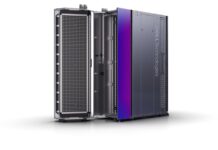The technological revolution shows absolutely no signs of abating. Quite the contrary, every aspect of life is being swept along on a trajectory that at times seems futuristic, says Craige Fleischer, Samsung’s Director of Integrated Mobility.
One area in which technological advances are making a significant impact is in education. Since the introduction of modern schools, the way in which children are taught has lacked the inclusion of multi-dimensional thought processes. Today, the need to focus on holistic learning is even more urgent as future generations move into a fast-changing workplace.
In Keith Sawyer’s book ‘The New Science of Learning,’ he states that, “By the twentieth century, all major industrialised countries offered formal schooling to all of their children. When these schools took shape in the nineteenth and twentieth centuries, scientists didn’t know very much about how people learn. Even by the 1920s, when schools began to become the large bureaucratic institutions that we know today, there still was no sustained study of how people learn. As a result, the schools we have today were designed around common-sense assumptions that had never been tested scientifically.”
Education systems around the world haven’t effectively addressed learner’s ability to absorb information. As the modern world shifts, new information and ways of using that information has changed what learners need to know, including the way in which they interact with and absorb knowledge.
While education systems have evolved to an extent to include conceptual understanding as well as more practical learning, there is still a long way to go in addressing the real-world needs of future generations. This is where technology has stepped in – changing the way students interact with the material they’re required to learn as well as the way in which they absorb and experience this information.
Tech Reach
According to Sawyer, learners need “to learn integrated and usable knowledge, rather than sets of compartmentalised and decontextualised facts. They need to be able to take responsibility for their own continuing, lifelong learning. These abilities are important to the economy, to the continued success of participatory democracy and to living a fulfilling, meaningful life.”
How technology can address this new way of learning has been explored using augmented reality, virtual reality and mixed reality – technologies that enhance teacher instruction at the same time as creating fun, engaging and immersive lessons. A peek into future classrooms will see learners fully engaged with VR sets and a complete immersion into concepts, problem-solving, facts, scenarios and multi-layered subject matter.
While some countries have been able to fully embrace new technology in schools and universities, the uptake is highly dependent on teacher skill levels and funding. But all educational institutions need to make a start. This includes introducing learners to technology by allowing them to have their own individual devices, thus expanding their learning and understanding of digital domains. This helps learners to internalise the study material and connect better with their peers and teachers.
A new beginning
At Samsung, we apply the latest technology, human and financial resources to create and run regionally-tailored education programs that offer relevant and valuable learning opportunities. One such example is the partnership Samsung has with Walter Sisulu University (WSU) in the Eastern Cape, South Africa where over 2,800 Samsung Galaxy Tab E 9.6” devices were purchased by the University between 2016/7 for their first-time entering students in selected extended programme qualifications. This has not only substantially eased student and lecturer work-load, but has also given students unprecedented access to information and the ability to create and submit assignments and other learning tasks on the go.
Students have access to e-learning materials and the internet, allowing them to further explore their areas of learning and conduct their own additional research. Students are also able to access the university online learning management system (called WiSeUp), anywhere on campus. The devices have become a critical part of the performance of students, underlying the importance of integrating technology with education. “The tablet initiative has been a success in enhancing both teaching and learning at the university. Our students’ motivation to learn has increased and they have expressed that the tablets have created the ability to learn anywhere on- and off-campus.” (Tabile Loqo, Institutional Co-ordinator for Extended Curricula Programmes).
Technology is not just the future, it’s now, which is why it’s essential for every student in the world to gain experience with devices and technology, so they can learn the basic skills required for entering the workplace and interacting with the world.
Samsung worked closely with the WSU Centre for Learning and Teaching Development (CLTD) and in-house e-learning specialists to ensure that relevant specifications were met. In addition to the devices, some departments within the Faculty of Natural Sciences have purchased learning software, which is installed on the student tablets to enhance their learning experience. The software provides video and MP3 tutorials, access to virtual laboratories in which students can conduct laboratory experiments and much more.
As part of the project, Samsung also conducted training for the approximately 120 lecturers who would be using tablets in their teaching. Beyond this, the lecturers are receiving ongoing additional in-depth training. This training focuses on integrating technology into their teaching and learning methods, with the tablets serving as the devices that lecturers are trained on. This extra training is being conducted by WSU e-learning specialists and material developers based at CLTD.
Future evolution
In response to this changing world, companies and researchers are rapidly bringing new products and services to market and transforming entire industries. These will require an upskilled workforce and employment of new talent that is competent at working with these new cognitive technologies. Our partnership with WSU equips their graduates to become frontrunners in gaining employment and driving innovation in this new world.
Today’s young generation are looking at a vastly different future to that of their parent’s – a future that hasn’t yet been fully visualised and will require evolutionary thinking and the ability to consistently adapt and address novel changes and challenges. The future of this world is highly dependent on our learners being given the opportunity to embrace technology and fully engage with innovation.
Provided by Samsung SA




























